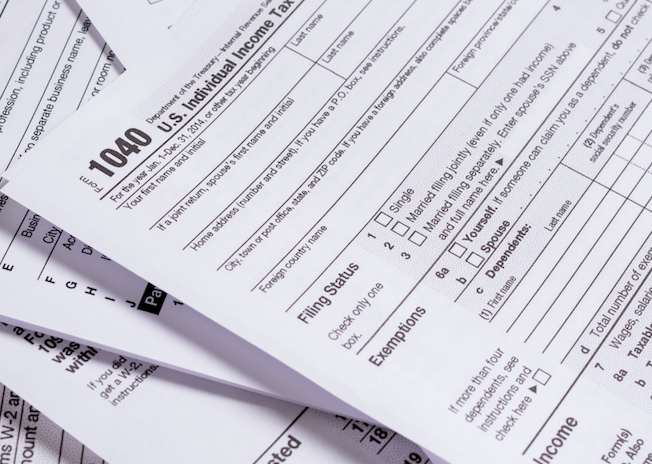Congress Working to Complete Tax Reform Legislation Before End of Year
December 8, 2017
 As 2017 draws to a close, Congress’ top priority is overhauling the current federal tax code. The U.S. House of Representatives and Senate each has passed their own tax reform bills, and are now reconciling the two versions to send a final bill to President Trump’s desk before the holidays. NMPF is working closely with members of Congress to shape the massive, complicated legislation so that it delivers a positive outcome for dairy farmers and their cooperatives.
As 2017 draws to a close, Congress’ top priority is overhauling the current federal tax code. The U.S. House of Representatives and Senate each has passed their own tax reform bills, and are now reconciling the two versions to send a final bill to President Trump’s desk before the holidays. NMPF is working closely with members of Congress to shape the massive, complicated legislation so that it delivers a positive outcome for dairy farmers and their cooperatives.
NMPF is working with others in agriculture to preserve the benefits that farmers and cooperatives enjoy from the Domestic Production Activities Deduction (DPAD), also known as Section 199. NMPF has long supported this deduction, which cooperatives claim on the proceeds from sales of agricultural products like milk. Cooperatives pass through a majority of the benefit – nearly $2 billion nationwide – directly to their farmer owners, and reinvest the remaining proceeds in infrastructure improvements to help both the farmer and the cooperative.
While the House and Senate bills both repeal DPAD, the Senate legislation allows cooperative members to claim a new 23-percent deduction on their taxable income for qualified cooperative dividends, which refers to patronage dividends, per-unit retain allocations, qualified written notices of allocations, and similar amounts. Cooperatives could also claim the 23-percent deduction on taxable income, but it would be limited to 50 percent of their wages. NMPF is attempting to improve these provisions to ensure that the final tax reform legislation continues to recognize the unique nature of how cooperatives are taxed.
In addition to DPAD, NMPF is working on several other issues in the legislation of importance, including:
- Estate Tax Relief – NMPF supports repealing the federal estate tax, which penalizes the transfer of farms between generations of family members. The House and Senate bills both make additional progress on this issue. The House doubles the existing exemption to $11 million for individuals and $22 million for couples, and fully repeals the tax after 2023. The Senate similarly doubles the exemption levels, but leaves the tax in place. Importantly, both bills preserve a full stepped-up basis for inherited property, thereby avoiding what could have been another tax increase to offset repealing or reducing the estate tax.
- Depreciation – Both the House and Senate bills would allow farms and other businesses to immediately write off 100 percent of qualified property costs through 2022. Current law allows businesses a 50-percent write-off for 2017, which decreases in the coming years.
- Expensing – The House and Senate take different approaches to expanding the Section 179 provision made permanent by the NMPF-backed 2015 PATH Act. The House bill would temporarily increase the maximum allowance from $500,000 to $5 million through 2022, and would expand the provision to cover used and new equipment. The Senate bill would permanently adjust the maximum allowance to $1 million, but would not expand the provision to include used equipment.
- Interest Deductibility – Both bills attempt to preserve the business interest deduction for most farmers. The House bill allows farms with less than $25 million in annual receipts to continue to deduct interest expenses, while the Senate bill allows farms with less than $15 million in annual receipts to continue to do so. However, the Senate bill exempts farms from that dollar limit if they agree to follow an alternative set of depreciation rules to offset the cost.
- Cash Accounting – Both the House and Senate measures would continue to allow farms to use cash accounting.
- Like-Kind Exchanges – Both the House and Senate would limit the use of Section 1031 like-kind exchanges to real property, removing their use for equipment.
- Environmental Stewardship – The House and Senate bills both phase down the Section 48 Investment Tax Credit is after several more years, per the 2015 PATH Act. Given the decision to let this tax credit expire, the Agriculture Environmental Stewardship Act to expand Section 48 to cover nutrient recovery systems and digesters was not incorporated into either chamber’s bill. NMPF will seek other legislative opportunities to address this issue over the coming months.
As the House and Senate work this month to prepare the final tax reform legislation, NMPF will remain closely engaged in seeking the best possible results on these issues.






